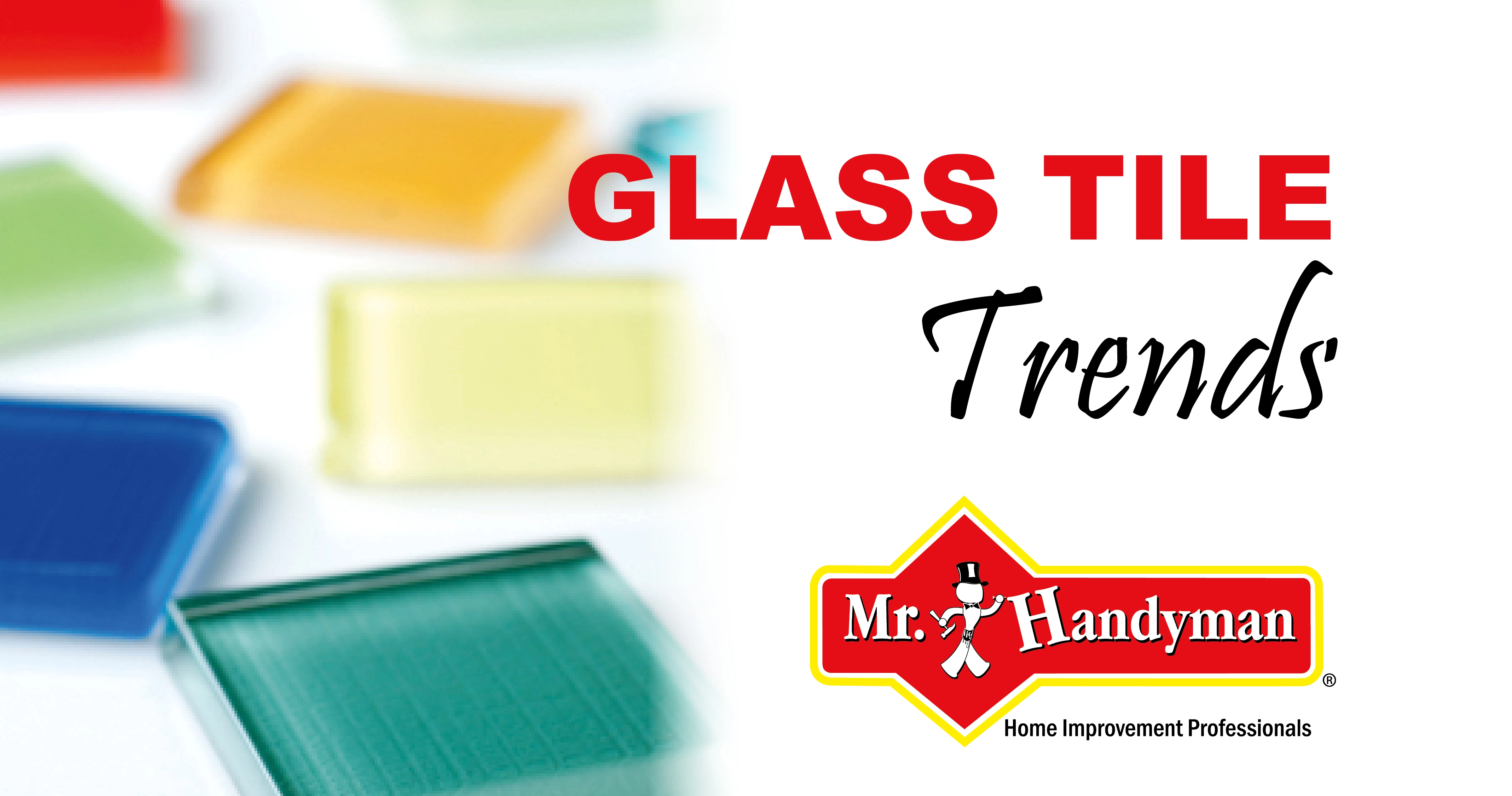Glass Tile Backsplash: Pros and Cons

Are you thinking of installing a new backsplash in the kitchen or bathroom? New tile could be just what you need to give the room a fresh pop of color and personality. But which material should you choose for your new tiles: glass or ceramic? Both options provide various styles, colors, and price points to suit your needs.
Most of the more popular glass tiles are made from thin pieces of glass with translucent glaze fired onto the back of each tile. Depending on the process and materials, glass tile can be clear, colored, and even textured for a unique appearance. Glass tile is typically sold individually or in mosaic patterns with a mesh backing. Here's what you need to know about glass tile backsplash pros and cons.
Advantages of Glass Tile
- Unmatched beauty: The translucence and endless color varieties of glass arguably make it the most beautiful, contemporary-looking backsplash material you can choose. The tiles reflect the light to give your kitchen or bath the appearance of being brighter and larger.
- Easy to clean: Grime and splashes can easily be wiped off glass tiles with soapy water or an all-purpose cleaner. Also, mold and mildew don’t readily grow on glass.
- Zero water absorption: Glass is impervious to water with an absorbency rate of 0% (compared to ceramic, which has an absorbency rate of 0.5% to 3%).
- Eco-friendly: Many glass tiles are made of recycled materials. Even if not, they are 100% recyclable at the end of their lifespan. Glass tiles also require only about half the energy that is required to produce ceramic tiles.
Disadvantages of Glass Tile
- More expensive: Glass tiles are trendy, though they are the most costly backsplash material available today. The approximate cost of glass tiles is $8 - $30 per square foot, not including labor.
- Professional installation is a must: Because glass is translucent, the adhesive is visible through the tiles. Achieving a professional-looking result is difficult if you attempt DIY glass tile installation.
- Scratches can occur: One of the most significant disadvantages of glass tiles is susceptibility to scratches. Sanded grout will scratch glass tile, so unsanded grout is a must. Abrasive cleaners and scrubbers can also scratch glass, so use nylon scrubbers and non-abrasive cleaners.
Types of Glass Tile
Most glass tiles feature a glossy or matte finish and are available in various sizes, shapes, and colors. From subway tiles to mosaics, bright patterns to subtle shades, each type of glass tile offers unique and beautiful options.
- Cast glass tiles feature a textured finish with bubbles, creases, and distinct designs inherent to a high-heat firing process. Because the high temperatures create a liquid state, cast glass tiles have color throughout, similar to marble.
- Fused glass is made with sheet glass that goes through a multi-step firing process that involves adding layers of glaze and color. The unique process can produce tiles with a smooth or textured finish and uniform or non-uniform color patterns.
- Coated glass tiles are made with sheet glass fired at low temperatures at lower temperatures. These tiles will have color coatings applied to the back of the transparent glass, which allows the back-coated colors to transfer through clear glass.
Once you weigh the pros and cons of a glass tile backsplash, glass tiles are perfect for updating a kitchen, bath, or other areas in your home.
Best Uses for Glass Tile
Glass tile is a versatile and beautiful material ideal for kitchen and bathroom backsplashes, but many more applications exist. Because glass tile is waterproof and durable, it's ideal for bathroom tubs and showers. The debate over the pros and cons of glass tile in a shower continues, but advancements such as slip-resistant glass tile for the floor tip the scale.
While large glass tiles aren't ideal as a primary floor covering, mosaic glass tiles can transform a bathroom floor or entryway. Glass tiles are suitable for nearly any vertical application, from unique fireplace accents to one-of-a-kind bathroom walls.
Pro tip: Install light-colored or transparent glass tile in a small bath or kitchen to make the space appear larger. Contact a professional installation company for guidance.
Maintenance and Cleaning of Glass Tile
One of the most attractive features of glass tiles is how easy it is to clean them. Glass cleaner or soap and water are usually enough to keep glass tiles looking new. As long as you don't use abrasive cleaners or scrubbers, you can clean glass tile without worrying about scratches. After you clean glass tiles, rinse them with warm water and polish them to a shine.
While tile is hard and durable, grout is not as hardy and should be cleaned gently. Avoid bleach for cleaning grout unless as you risk discoloration. Instead, use an over-the-counter grout cleaner which will typically be less harsh. Inspect the grout monthly for missing grout and other issues and regrout as necessary to keep moisture under control.
Final Thoughts on Glass Tile
Even when they know the glass tile backsplash pros and cons, many homeowners choose glass over traditional ceramic tiles. If glass tiles aren’t in the budget, you might consider combining glass and ceramic. This is done by installing ceramic tiles for most of the backsplash with a stripe of glass tiles as an accent. This could be the perfect compromise to balance the higher cost with the benefits of glass tiles.
Whether you opt for glass or ceramic tiles, professional installation provides the best results. At Mr. Handyman®, we have the skills and experience to install tiles of any material. Every installation is performed by experienced service professionals and backed by the Neighborly Done Right Promise™. Call or contact us online for more information on how we can assist with your tile needs.
 Click to call
Click to call


